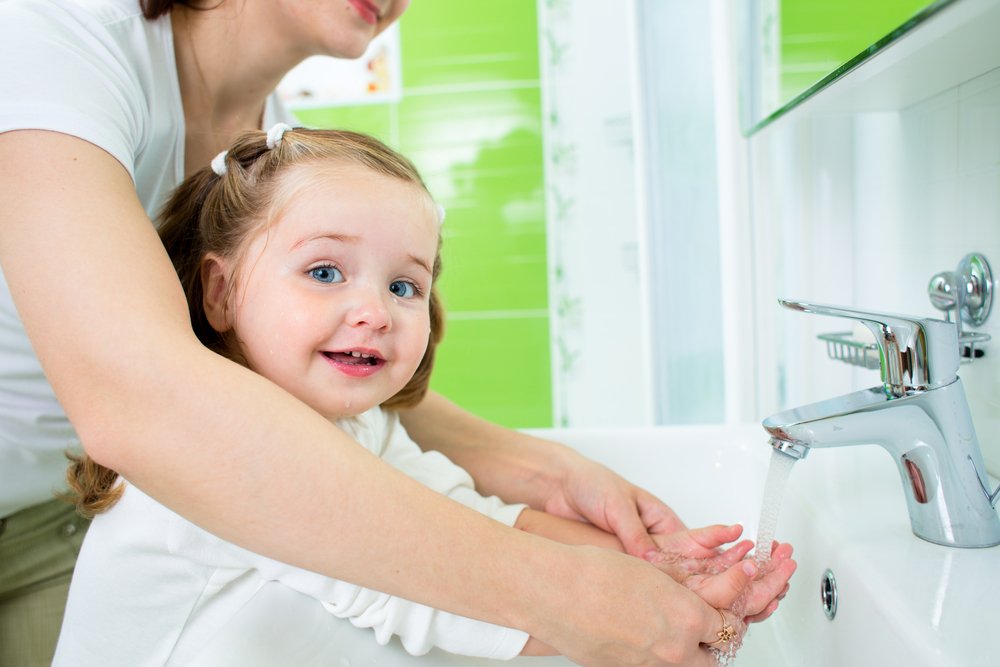Maintaining proper hygiene practices is paramount for safeguarding infants against infections and illnesses. In this comprehensive guide, we’ll provide essential tips for parents on ensuring good hygiene practices to protect their infants from potential health risks. Join us as we delve into the importance of practices such as proper handwashing, diaper changing, and cleaning routines, creating a safe and healthy environment for infants at First Bloom Daycare.
Importance of Health and Hygiene Practices
1. Significance of Hygiene
- Infection Prevention: Emphasizing how good hygiene practices reduce the risk of infections.
- Promoting Health: Discussing how hygiene practices contribute to overall well-being.
2. Hygiene for Infants
- Vulnerability to Infections: Explaining why infants are more susceptible to illnesses due to underdeveloped immune systems.
- Preventive Measures: Highlighting the role of hygiene in preventing infections in babies.
Essential Hygiene Practices for Infants
1. Proper Handwashing
- Handwashing Techniques: Explaining proper handwashing steps for caregivers before handling the baby.
- Frequency of Handwashing: Encouraging frequent handwashing, especially after diaper changes and before feeding.
2. Diaper Changing Protocols
- Hygienic Diaper Changes: Outlining steps for hygienic diaper changes to prevent infections.
- Choosing the Right Diapers: Tips on selecting appropriate diapers for comfort and preventing rashes.
3. Cleaning and Sanitization
- Cleaning Routines: Establishing regular cleaning schedules for toys, surfaces, and baby equipment.
- Disinfecting Practices: Emphasizing the importance of disinfecting areas frequently touched by infants.
Implementing Hygiene Practices
1. Creating Hygiene Habits
- Modeling Behavior: Encouraging caregivers to serve as role models for good hygiene practices.
- Teaching Hygiene: Educating older siblings on the importance of maintaining hygiene around infants.
2. Hygiene During Outings
- Portable Hygiene Kits: Packing essentials like sanitizers and wipes when traveling with infants.
- Public Spaces: Ensuring cleanliness and hygiene in public areas where infants may come into contact.
Hygiene Safety and Best Practices
1. Proper Disposal and Waste Management
- Diaper Disposal: Guidelines for proper disposal of diapers to maintain cleanliness.
- Waste Management: Tips on safely managing waste to prevent contamination.
2. Caregiver Health and Well-being
- Personal Health: Encouraging caregivers to prioritize their own health to prevent potential transmission of illnesses.
- Awareness of Symptoms: Highlighting the importance of recognizing symptoms of illnesses in caregivers.
Nurturing a Hygienic Environment
1. Consistent Communication
- Sharing Hygiene Practices: Communicating and reinforcing hygiene practices with daycare staff.
- Parental Involvement: Encouraging parents to actively participate in maintaining hygiene standards.
2. Celebrating Hygiene Milestones
- Reinforcing Positive Practices: Acknowledging and rewarding adherence to good hygiene habits.
- Educating Others: Spreading awareness about the importance of infant hygiene practices in the community.
In conclusion, at First Bloom Daycare, we prioritize the implementation of effective hygiene practices for infants. By adhering to these essential tips, parents and caregivers can create a safe and healthy environment, minimizing the risk of infections and promoting the well-being of infants.
Join us in nurturing a hygienic environment for your infant’s safety and health at First Bloom Daycare.

